Is HVAC A Good Career? The Future Of Work: Hvac Technicians
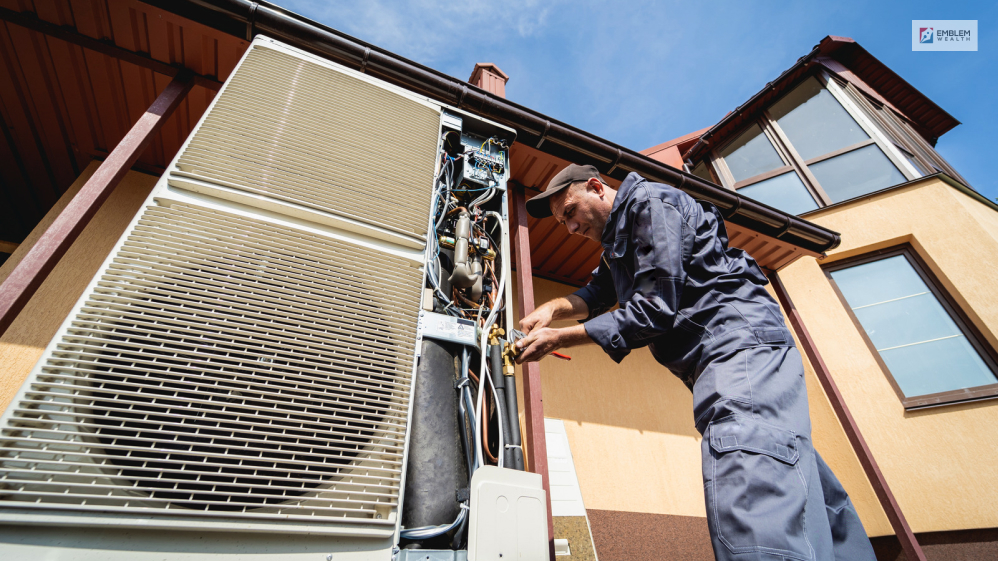
Is HVAC a promising career?
This is maybe one of the few questions popping into your head while looking for a great career choice! You might also wonder, “What if the HVAC role is hard!”
If you are considering working as an HVAC professional, that’s a pretty great career decision, mainly to keep cool! But is it for you?
This blog post will discuss how HVAC can be a great career option. We will help you to understand how you can navigate through this particular career field, what options to choose and what are the advantages as well as disadvantages associated with this particular career option.
You need to understand some familiar things, and that’s it! I hope this blog will make it easy for you to know whether an HVAC career is a good choice! Read on…
What Does HVAC Stand For?
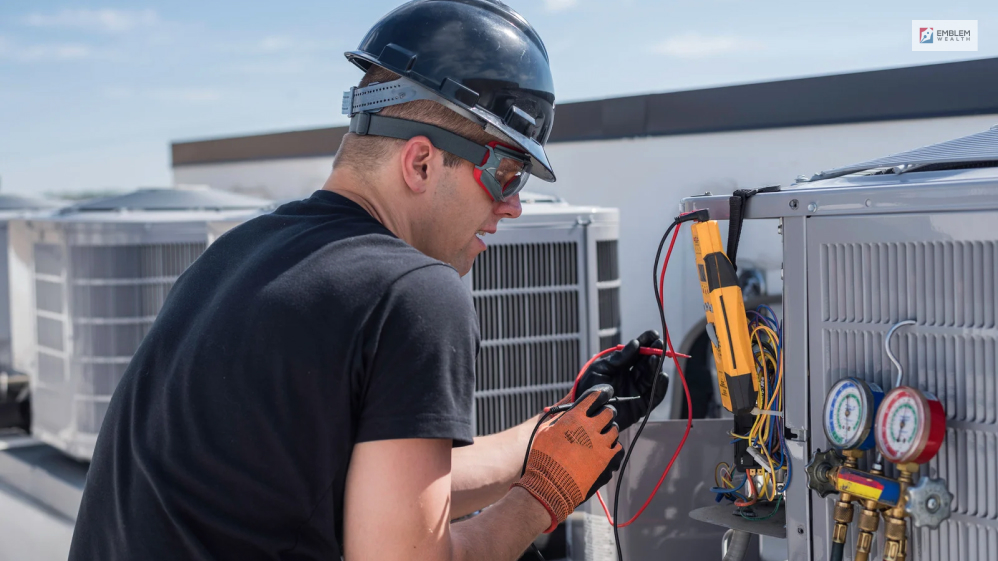
HVAC means Heating, Ventilation, and Air Conditioning. It is often referred to as systems that control the temperature, air quality, and overall comfort of any indoor environment.
HVAC technicians install, maintain, and repair home systems and cooling, business systems, school districts, hospitals, and much more.
They keep us comfortable by showing that we have heating in the winter, cool air in the summer, and proper ventilation throughout the year.
The Growing Demand For HVAC Professionals
One of the first things that might pop into your head when you are thinking about a career is job security. And now, with modern society, the HVAC industry offers a pretty solid answer to that concern.
According to the U.S. Bureau of Labor Statistics, employment for HVAC technicians was expected to grow by about 5 percent from 2022 to 2032. It was predicted that growth would approximately resemble that of all occupations altogether.
Demand for HVAC is increasing due to a variety of factors. More people are born, and therefore need houses and workplaces to be constructed, and as a result, the demand for heating and cooling increases with the number of people.
Climate change is also an important one since it raises the probability of extreme weather, which further increases the heating requirements in cold regions and the air-conditioning requirements in hot areas.
In addition, most of the existing systems require overhaul and upgrade; thus, the demand for competent HVAC workers is always in existence.
Is HVAC A Good Trade?
Is HVAC a good career? Absolutely! If you’re looking for a stable, well-paying trade that offers room for growth, HVAC is a fantastic choice.
HVAC professionals work on heating, cooling, and ventilation systems, which are always in demand—whether it’s for homes, businesses, or even schools and hospitals. The best part?
The job market for HVAC technicians is growing, and there’s a constant need for skilled workers. The pay is excellent, too. And then, of course, comes even more as one gathers more experience, and more, like energy-efficient systems, and so on.
Work is efficient in every sense, always interesting-every days different. When you’re putting in new systems, fixing broken ones, or learning about the latest way to save energy, HVAC keeps you occupied and challenged.
So, is HVAC a good career? “It is, especially for people who like to work with their hands and solve problems.”
The facility you work in could be a home, a business, or even a factory. As a veteran in the field, an individual can go up and become a supervisor, lead various workers, or even start up their own HVAC companies. The HVAC field provides vast opportunities for growth and advancement.
But! Is HVAC A Respectable Trade?
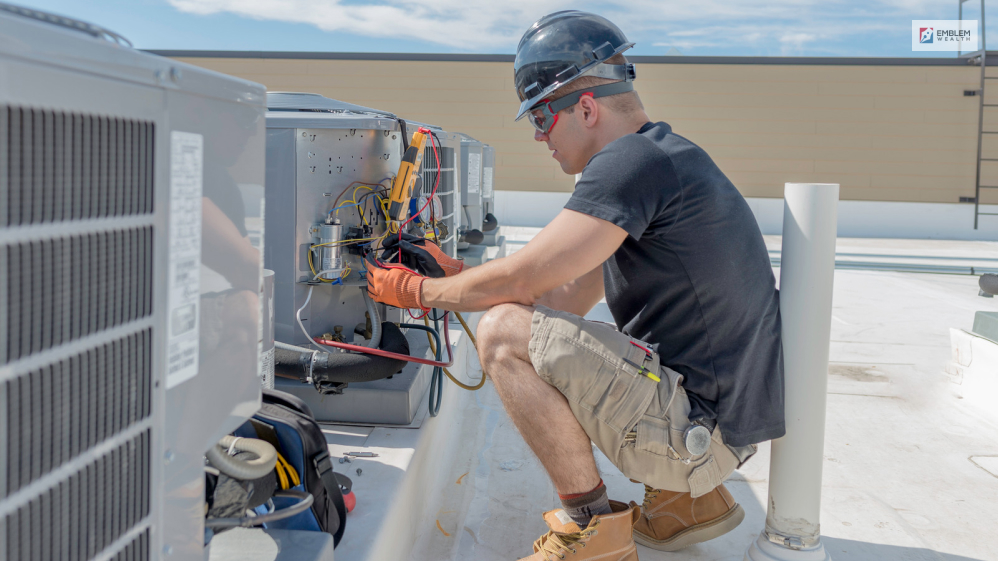
If you ask, “Is HVAC a good career?” The answer is yes, for job security and reasonable pay. It is considered a trade that one earns respect for because of the genuine and practical nature of its work.
HVAC technicians are indispensable to ensuring that people in all types of homes, businesses, and public venues experience comfort and safety.
These are achieved through quality heating, cooling, and ventilation. More on this later, but this kind of work demands great skill and technical ability, and the expertise combined with confidence and pride shows in the worker himself.
More people need HVACs because they use them throughout the year. Second, the job pays well and can do well in giving better opportunities.
Being an HVAC technician will allow you to focus on particular areas, such as energy-efficient systems or green technology, so it’s a field that keeps changing.
HVAC: Is It One Of The Hardest Jobs?
HVAC work is hard but very rewarding and challenging at the same time! However, it is not that tough. It involves installing, fixing, and maintaining heating, ventilation, and air conditioning systems.
It involves solving problems as well as doing concrete work with a high level of technical expertise sometimes. At other times, working in enclosed spaces with big machines, lifting oversized parts, or handling extreme temperatures could make work itself a challenge.
For one, many people believe that the work is fulfilling because it is hands-on work, and you get to see the fruits of your labor right away-for example, when the air conditioner is fixed in hot weather, or a new system is installed.
In addition, since there will always be a need for skilled workers in HVAC, this offers stable employment and good wages.
So even though HVAC work can sometimes be unmanageable, it’s an excellent career opportunity for people who like variety, solving problems, and using their hands. So, is HVAC a promising career? I’d say it is one of the best ones that you must consider!
What are the Cons of an HVAC career?
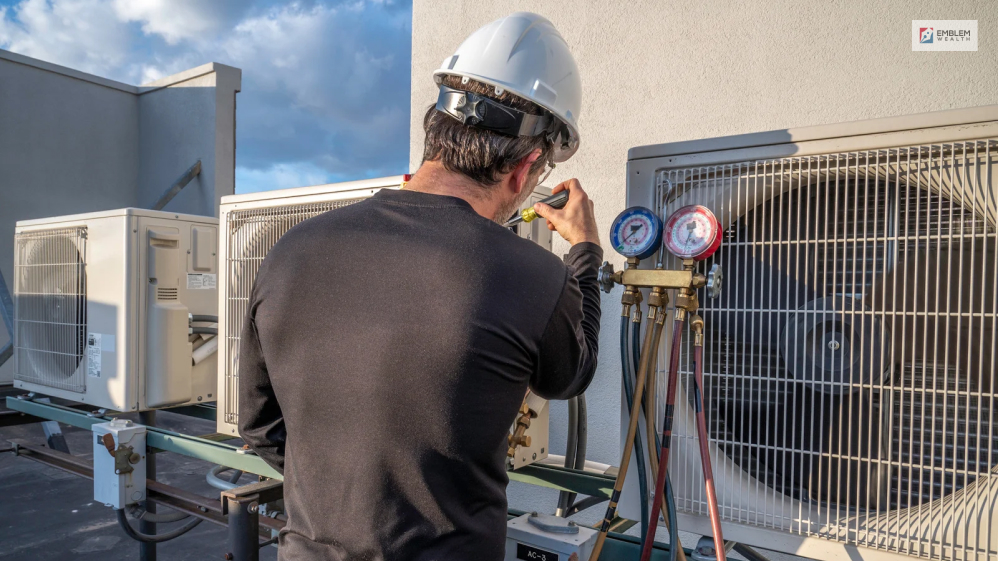
A HVAC career can be a good job choice but there are some downsides to think about. It can be hard on the body. Part of the problem is that technicians do a lot of physical work. It starts with lifting, squeezing into small spaces, and working in very hot or cold conditions, which becomes challenging over time.
Another disadvantage is the odd hours. HVAC technicians could be required to work at such weird hours. Emergencies during wintertime when a heater is broken could mean working late at night, on weekends, or even on holidays.
On the other hand, the job can sometimes be stressful, mainly when it contains complicated problems or handling demanding customers.
It pays well, but starting salaries might be low until you gain more experience or focus on areas like energy-efficient systems.
However, working in HVAC is still a good career for those who enjoy getting their hands dirty and solving problems. Benefits often outweigh drawbacks, with stability in employment and space for growth.
HVAC Career: Does It Require Math Skills
You don’t have to be a math wizard, but you do need basic math for this job. This is because mathematics forms the basis of measuring and computing things like airflow, temperature variations, and system size.
For example, when setting up or repairing systems, you’ll have to know how to compute the proper size for ducts or pipes or even determine the appropriate refrigerant levels.
Elementary math and sometimes algebra are also applied when dealing with blueprints to find suitable sizes for installations. It is not high math calculation, but basic math skills assist technicians in finding answers or ensuring that systems work.
| Basic arithmetic | Addition, Subtraction, Multiplication, And Division |
| Algebra | Helps you in solving equations and inequalities |
| Geometry | Calculating different areas, angles, and volumes |
| Trigonometry | Calculating angles and side lengths of triangles |
If you are asking – is HVAC a good career and you are afraid of math, I’d say, don’t sweat it! You only need to know basic math to begin, and with time, you will find it easy to do in your job.
Where Are You Going To Use MathIn Your HVAC Career?
There are many ways in which math applies to HVAC:
- Diagnosing HVAC problems
- How many BTUs a particular space would consume.
- Determine the airflow rate of a duct system.
- Measure the pressure drop across a clean air filter.
- Measuring out an HVAC system
For work in HVAC, you might first ask, “How long does it take to be an HVAC tech?” The answer would depend on the path chosen; however, the length of time it takes to become an HVAC technician generally takes less time than most skilled jobs or professions.
How Long Does It Take To Become An HVAC Tech?
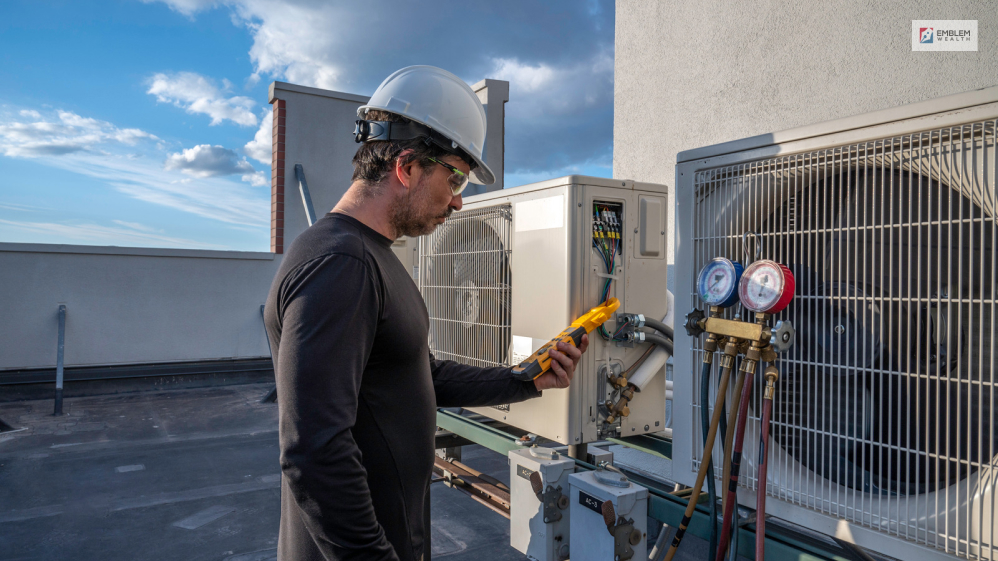
Here’s a general overview of the usual timeline:
- Formal Education (6 months to 2 years): Many HVAC technicians start by attending a vocational school or community college program.
These programs usually take anywhere from 6 months to 2 years to complete, depending on whether you’re going full-time or part-time. You’ll learn the basics of HVAC systems, electrical work, and safety protocols during this time.
- Apprenticeship (3 to 5 years): Once you can take up an apprenticeship, during which you work under the guidance of a seasoned technician who teaches you on the job.
This type of training typically lasts for between 3 to 5 years. Apprenticeships combine practical learning and classroom learning. So you can earn money while you learn.
- Licensing and Certification (After Graduation): The location in which you reside will impact if you need to be licensed to work as an HVAC technician.
This can typically refer to passing an exam on industry regulations, such as working with refrigerants. Laws regarding licensing vary by state, but being certified increases your chances of being hired.
You can be an entry-level HVAC technician in as little as 6 months. With your apprenticeship and further certifications, you will obtain, you are improving your career over time.
So, is HVAC a good job? Yes, it is; fast training makes it an attractive option for people who want to get started in a solid, good-paying field.
The Resources You Need To Learn HVAC On Your Own
There are also HVAC trade resources where you can learn about HVAC on your own:
- Online courses: Many online courses can be taken to learn the fundamentals of HVAC. Some may be free, while others will set one back some dollars.
- Practical skills related to HVAC are taught in trade schools. Most of the programs usually take 1-2 years to complete.
- HVAC Apprenticeships: Apprenticeships are an excellent way to learn about HVAC and earn money. An HVAC apprenticeship program usually takes 3 to 4 years to finish.
- Books and manuals on HVAC: A variety of booklets and manuals are available on this subject in libraries and bookstores.
- Trade magazines: Trade magazines like ACHR News are an excellent way to keep informed about the newest HVAC technologies.
There are also many online forums and groups where you can seek help from other HVAC technicians by asking any question you may need an answer to. HVAC podcasts and YouTube channels.
Moreover, there are many free training videos and really great HVAC podcasts out there to learn from experienced HVAC technicians.
How To Get Started as an HVAC Tech
If you are serious about becoming a licensed HVAC technician, here is the list of steps you can take to progress. The field of HVAC is one of those rewarding fields with promising job security and good pay; it just takes time to gain the appropriate set of skills and experience.
Here are some of the most essential steps toward getting on the right track:
- Seek a Mentor or Join a Trade School: One way to make that leap is by seeking a mentor or joining a trade school that teaches one the fundamentals of how HVAC systems work.
You’ll be built up on the technical side of the profession through a structured program: electrical work, refrigeration, and system diagnostics.
- Gain Practical Experience: The sooner you gain practical experience, the better. It might be through an apprenticeship or part-time employment. This is where you learn the hands-on basics of how HVAC systems operate in real life.
- Always ask where appropriate. More experienced service technicians are often highly willing to share their experience with you so you avoid many mistakes that you would otherwise have to incur through others’ learning curves.
- Stay Informed: The HVAC industry is perpetually changing, introducing new technologies and smart home integrations. Be sure to stay up to date on the latest trends to really compete in this field.
- Developing Communication Skills: Even though the technicians are in contact with customers every day, good communication skills make things easier and smoother. Listening to podcasts or reading books that detail the business of HVAC can really hone these skills.
Make Your Choice Today!
So, is HVAC a good career? With the right approach, it offers not only job security but also a rewarding salary and ample opportunities for both professional and personal growth. If you’re prepared to dedicate yourself, HVAC could very well be the perfect choice for you!
Additional Readings:


























Leave A Reply